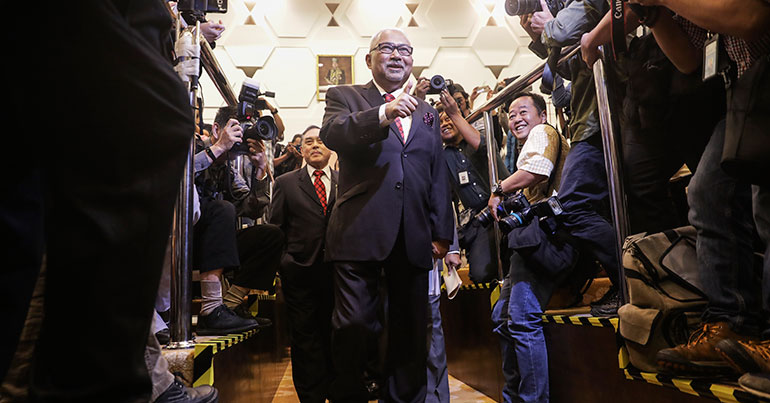That this year’s polls fall on a weekday has stoked concerns of low voter turnout ahead of this year’s controversy-ridden general election

Malaysia’s Election Commission (EC) announced on Tuesday that the country would hold its general election on Wednesday 9 May, marking the first time in almost 20 years that a Malaysian election has been set for a weekday.
“The EC has held a meeting and established that polls must be held within 60 days of the date of dissolution,” EC chairman Hashim Abdullah told reporters, before adding that the election would take place on 9 May.
Candidates will be nominated on 28 April, allowing for 11 days of political campaigning in the run-up to the election. According to the electoral reform group Bersih, the campaign period falls well below the 21 days necessary “to give voters adequate time to assess the candidates and their manifestos”.
That polls this year will fall on a weekday has also raised concerns of low voter turnout.
While Malaysia’s Election Offences Act stipulates that employers must give employees time off work to vote without docking their pay, opposition leader Mahathir Mohamad and Bersih have both said that the weekday election date will make it difficult for voters who work away from the town in which they cast their votes to participate in the polls.
“I think for the village people they can come out but for the people who are working, they will find difficulty coming to vote,” Mahathir said at a press conference on Tuesday.
“We have about 500,000 workers in Singapore. So these people should be voting but now they are deprived of their right to vote, whether it’s for the government or for us.”
In a statement published to its Facebook page, Bersih called upon the federal government to announce a public holiday on the election day, as well as on the day before or after polling, in an attempt to increase voter turnout.
“If this is not done, all employers should allow two days of unrecorded leave for all voters,” the statement added.
But Eric See-To, deputy director of the ruling coalition Barisan Nasional’s Strategic Communications team, defended the EC’s decision to call an election on a weekday on the basis that not all Malaysians observe the same weekly calendars.
See-To argued in a Facebook post that, given the states of Terengganu, Kedah and Kelantan have their weekends on Friday and Saturday, “if the election is set on a Sunday, it will not be fair to those states”.
“Likewise,” he continued, “if an election was set on a Friday, it will not be fair for other states. Similarly if election was set on a Saturday, it will be a half working day for some while a full rest day for other.”
Staging polling on a weekday would mean all states would be inconvenienced evenly, he argued.
The weekday election date is far from the only controversy to have tarnished the legitimacy of the country’s 14th general election.
Last Thursday, the country’s Registrar of Societies temporarily dissolved the country’s main opposition party for failing to meet a deadline to submit certain documents, while the Malaysian cabinet just weeks before approved a draft anti-fake news bill that critics say will be used to suppress political dissent.
Meanwhile, Prime Minister Najib Razak’s ruling party has been accused of pressuring the ostensibly independent Election Commission (EC) into redrawing parliamentary and state boundaries to boost its chances of winning the general election. Critics say the delineation process, which the EC is mandated to carry out once at least every eight years, has put large numbers of opposition-leaning voters into fewer seats and divided constituencies along racial lines.
Despite facing a litany of graft allegations related to the country’s 1MDB sovereign wealth fund and rising discontent about the increased costs of living, Najib is widely expected to hold onto power in the upcoming elections.
Malaysia announces 9 May election date amid concerns of low voter turnout
That this year's polls fall on a weekday has stoked concerns of low voter turnout ahead of this year's controversy-ridden general election

